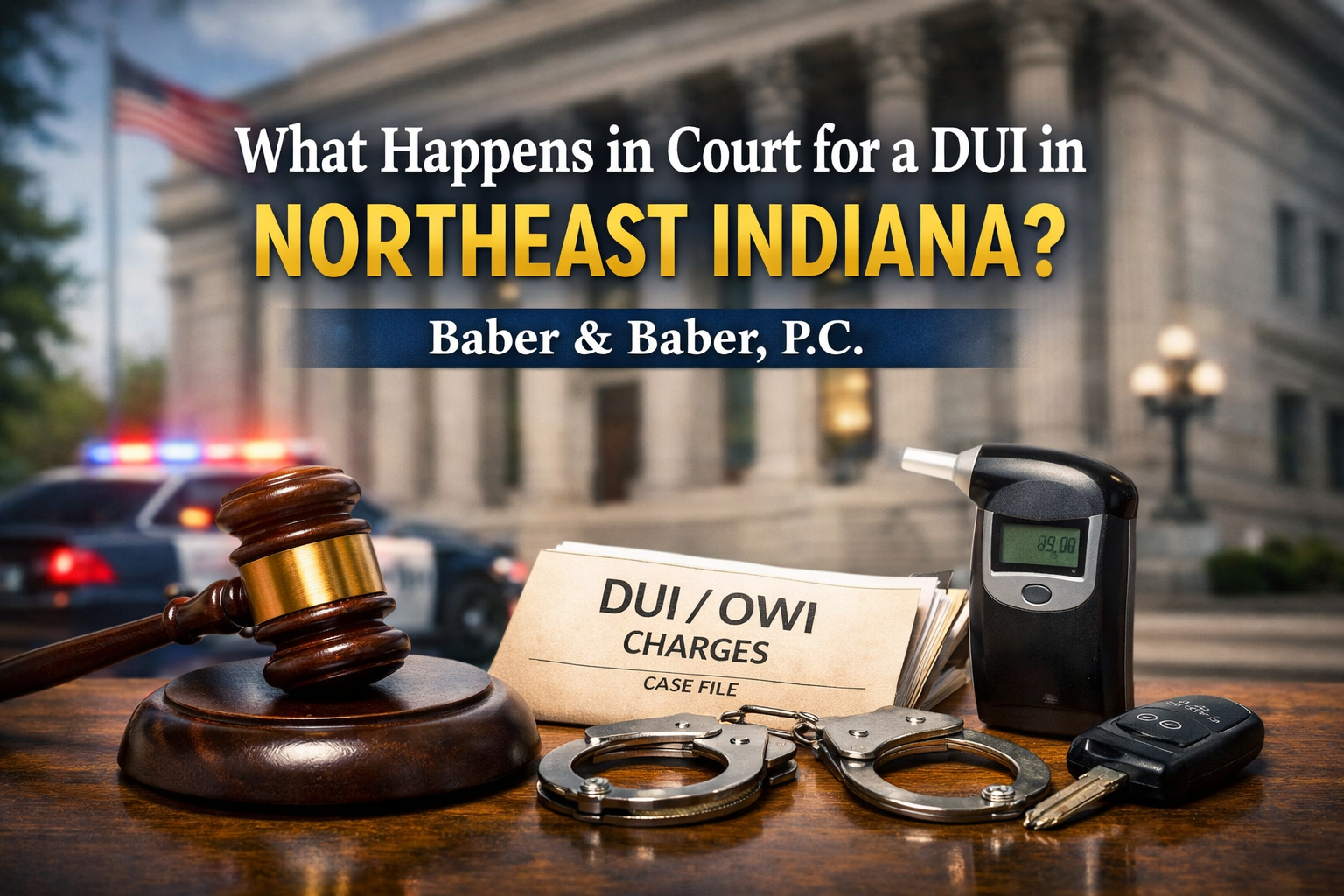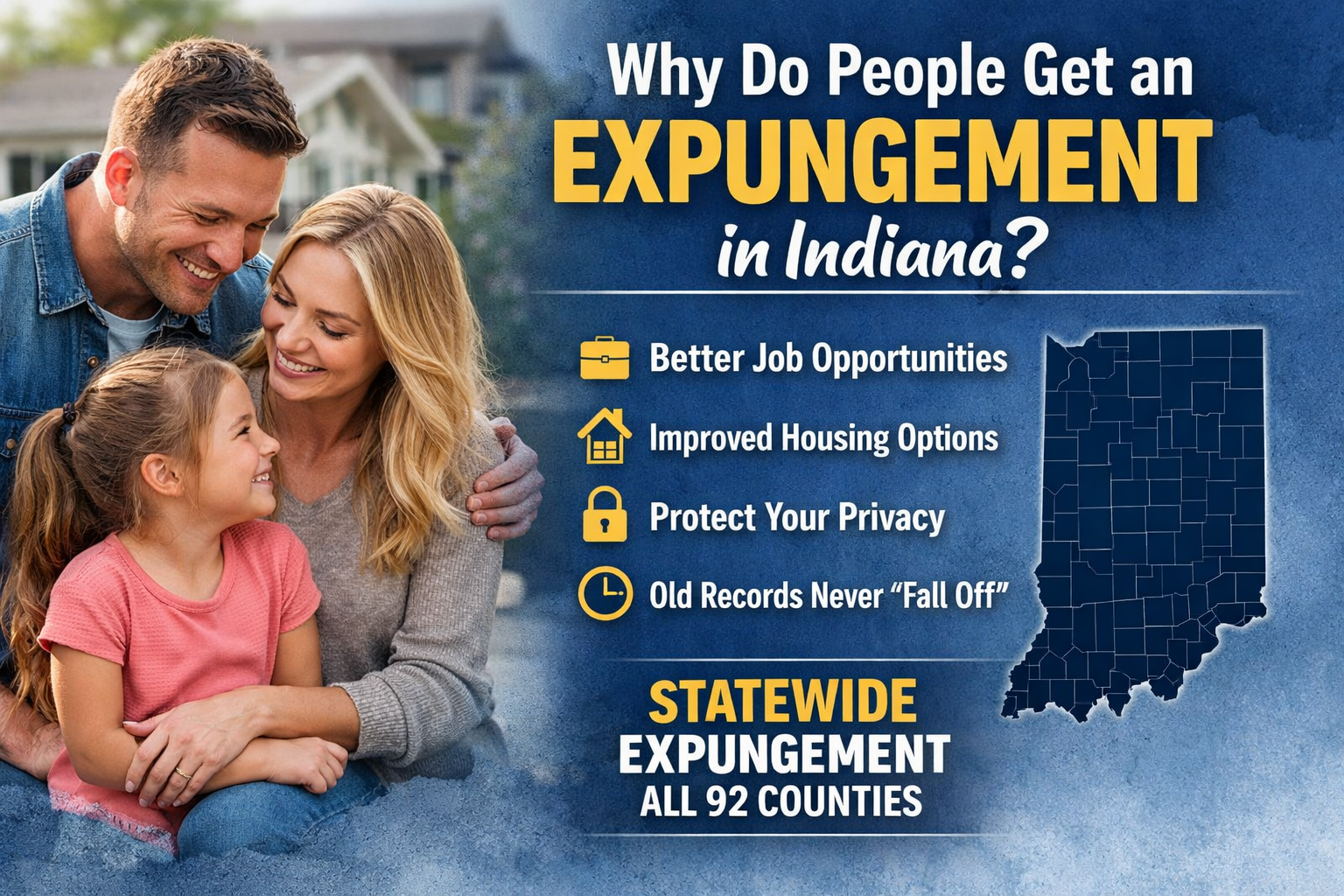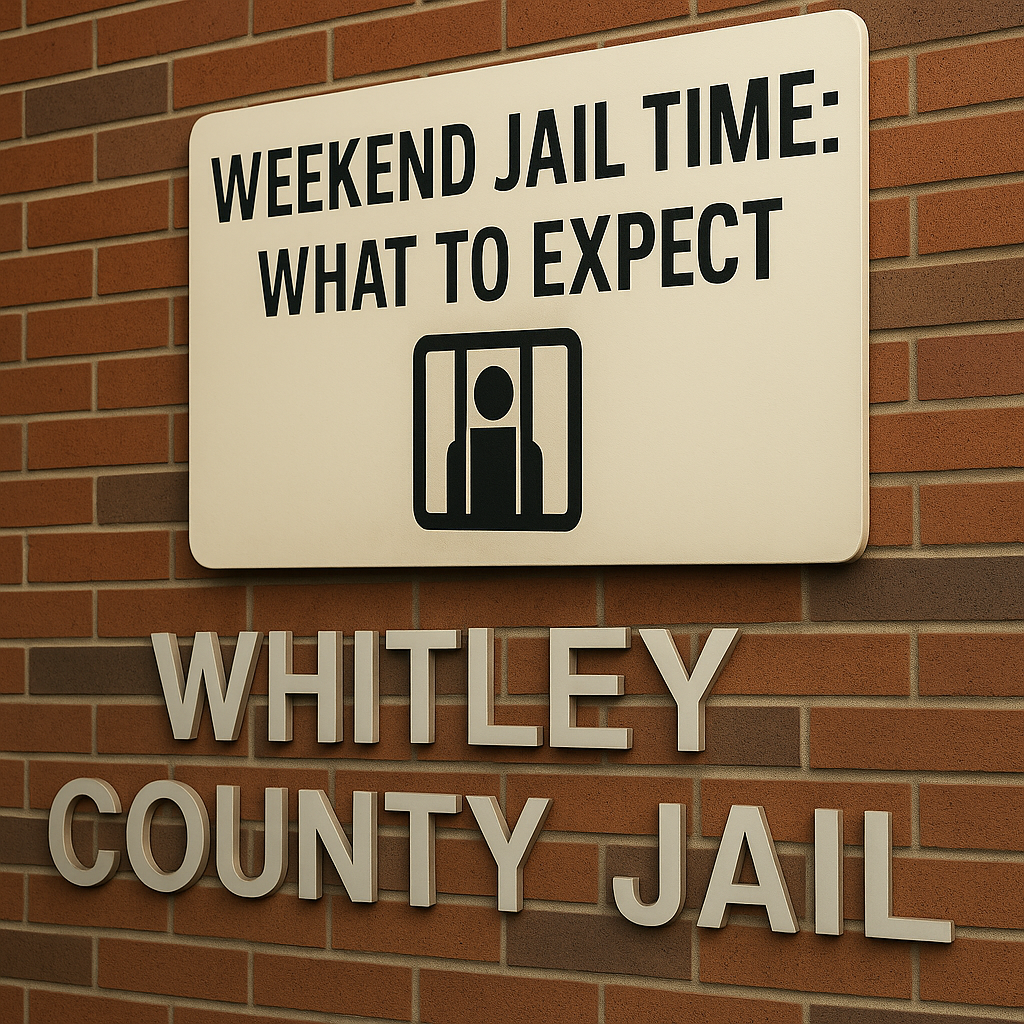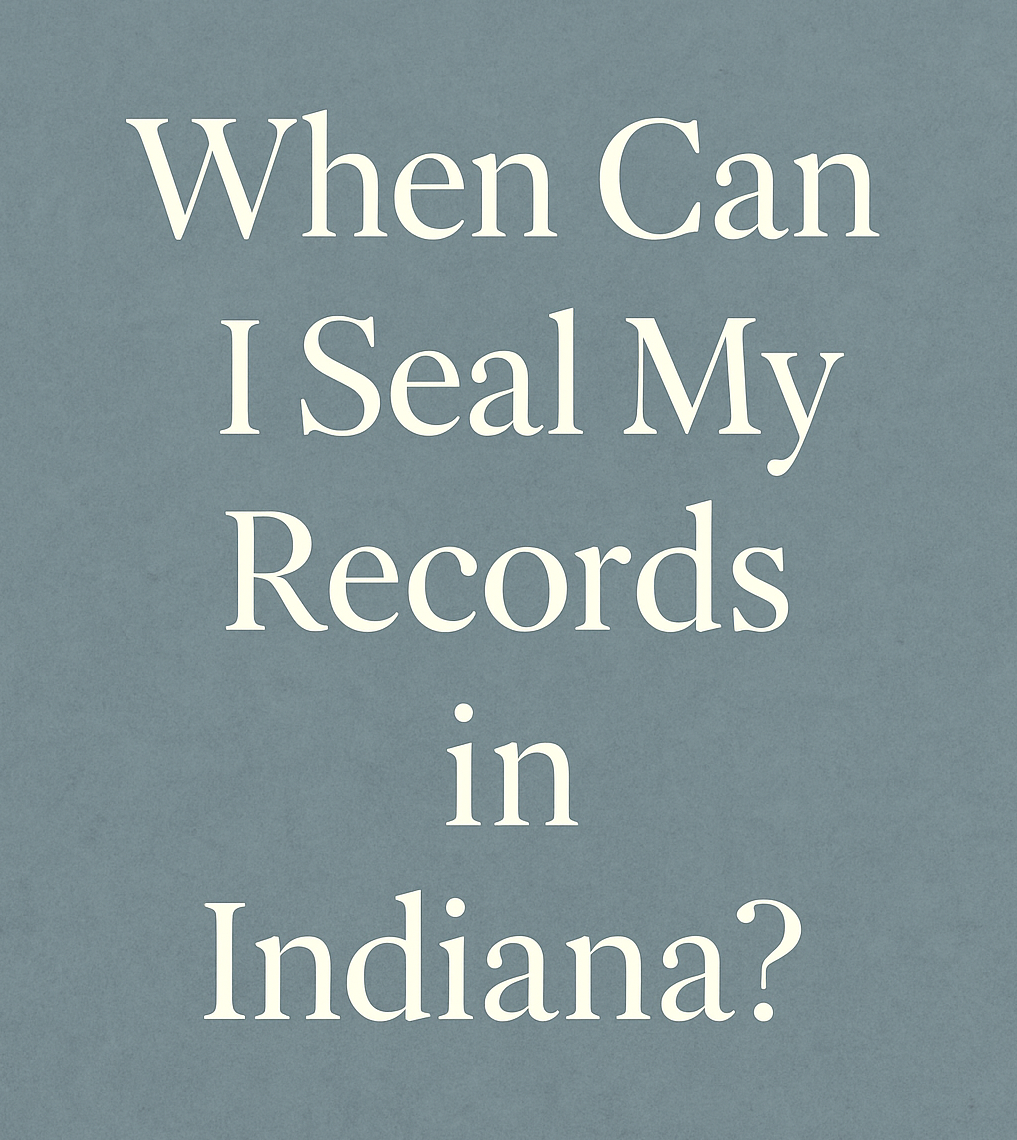Can I File For Early Expungement In Indiana?
Zach Baber • May 29, 2025
The short answer is usually yes, but it's an uphill battle.
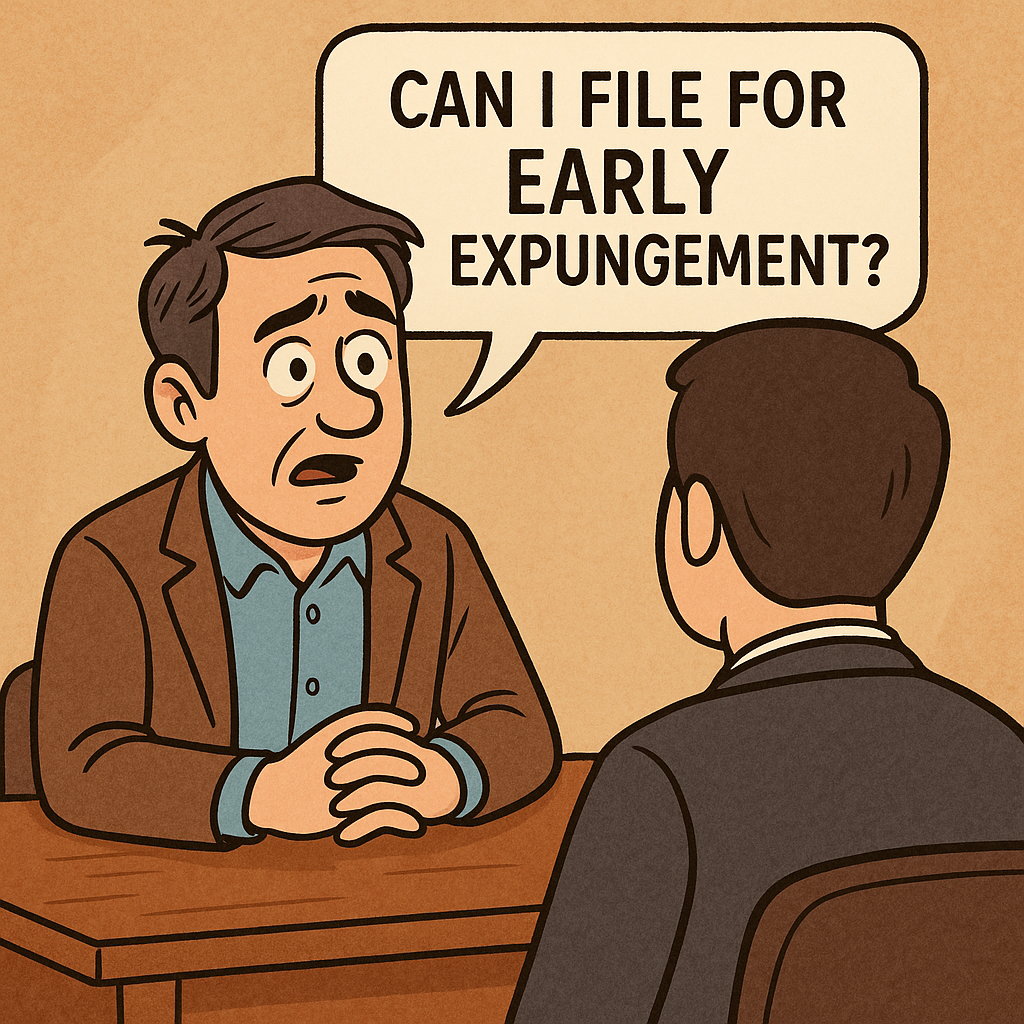
If you’re ready to move on from your past but haven’t reached the required waiting period, you might be wondering:
The short answer? Yes, but it’s not easy.
Indiana law allows for early expungement under specific circumstances, but only with the prosecutor’s consent, and that can be difficult to obtain.
Here’s what you need to know about early expungement and how to improve your chances of success.
The General Rule: You Must Wait
Arrests or dismissed charges: 1 year
Misdemeanors: 5 years
Most level 6 felonies: 8 years
More serious felonies: 8+ years
In general, you cannot file early unless the county prosecutor agrees in writing to waive the waiting period.
Early Expungement Is Possible With Prosecutor's Consent
How to Prepare for Early Expungement
1. Get Your Finances in Order
3. Update Your Resume
5. Start Volunteering
6. Stay Out of Trouble
Final Thoughts
If you’re not eligible to file today, don’t wait until the last minute.
Need Guidance on Early Expungement?
If you’re serious about clearing your record, let’s talk.
📍 Based in Columbia City | Serving All of Indiana
📞 Call 260.244.4422
🌐 Visit: https://www.bradbaberatty.com/seal-your-records
“Can I file for early expungement in Indiana?”
The short answer? Yes, but it’s not easy.
Indiana law allows for early expungement under specific circumstances, but only with the prosecutor’s consent, and that can be difficult to obtain.
Here’s what you need to know about early expungement and how to improve your chances of success.
The General Rule: You Must Wait
Indiana expungement law sets strict waiting periods based on the type of offense:
Arrests or dismissed charges: 1 year
Misdemeanors: 5 years
Most level 6 felonies: 8 years
More serious felonies: 8+ years
In general, you cannot file early unless the county prosecutor agrees in writing to waive the waiting period.
Early Expungement Is Possible With Prosecutor's Consent
Under Indiana Code § 35-38-9, you may be able to file before the waiting period ends if the prosecutor consents. However, many prosecutors are reluctant to agree unless you’ve clearly demonstrated:
- Rehabilitation
- Community involvement
- Stability
- A compelling reason for early relief
How to Prepare for Early Expungement
Even if you’re not eligible today, the actions you take now can increase your chances later - especially if you plan to ask for early consideration.
Here’s what you can st
art doing today:
1. Get Your Finances in Order
Pay off any outstanding:
- Fines
- Court fees
- Restitution
Employment shows stability and responsibility.
Even part-time or entry-level jobs can support your petition and demonstrate commitment to turning your life around.
3. Update Your Resume
You may be asked to provide it or include it as part of your petition. A strong resume reflects:
- Growth
- Responsibility
- A desire to contribute to society
Ask people who have known you since your conviction to write letters supporting your expungement.
Ideal references include: - Employers
- Mentors
- Pastors
- Community leaders
- Friends who can speak to your change
5. Start Volunteering
Community involvement, especially ongoing volunteering, can significantly strengthen your case.
It shows:
- Humility
- Social investment
- A genuine desire to give back
6. Stay Out of Trouble
This should go without saying, but any new arrest or conviction (even something minor) can destroy your chances.
Maintain a clean record, and if you’re on probation or parole, stay in full compliance.
Final Thoughts
Early expungement in Indiana is possible, but it's an uphill climb.
The prosecutor’s approval is the biggest barrier, and to get it, you need to show that you’ve put in the work and are committed to building a better future.
If you’re not eligible to file today, don’t wait until the last minute.
Start preparing now. The stronger your foundation, the better your chances of convincing the prosecutor and judge that you're ready for a clean slate.
Need Guidance on Early Expungement?
At Baber & Baber, P.C., we’ve helped clients across Indiana prepare strong expungement petitions - even in tough, early-filing cases.
If you’re serious about clearing your record, let’s talk.
📍 Based in Columbia City | Serving All of Indiana
📞 Call 260.244.4422
🌐 Visit: https://www.bradbaberatty.com/seal-your-records





